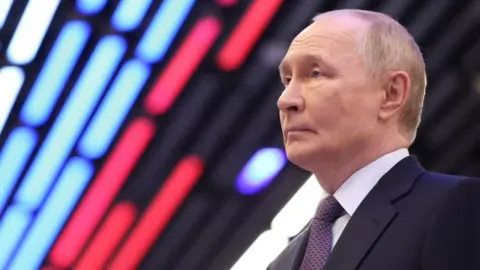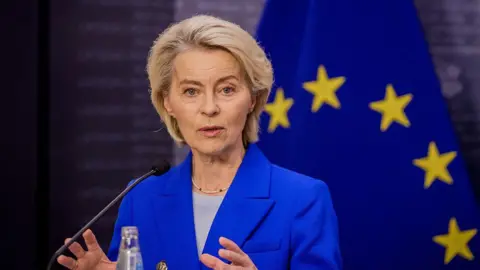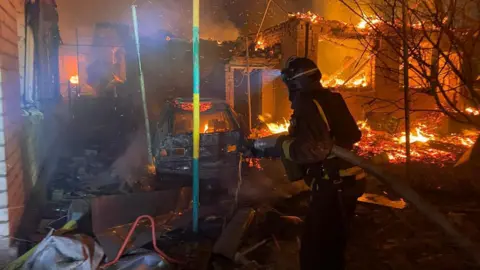Ukraine has dramatically increased the number of attacks launched against Russian oil refineries in recent months, sparking fuel shortages and price rises in some parts of the country, BBC Verify and BBC Russian have found.
Drone strikes on refineries - some deep inside Russia - soared in August and remained high in September, an analysis of Russian media reports and verified footage showed.
Some 21 of the country's 38 large refineries - where crude oil is converted into usable fuel like petrol and diesel - have been hit since January, with successful attacks already 48% higher than the whole of 2024.
Ordinary Russians appear to be feeling the impact of the strikes, with verified videos showing long queues at petrol stations. Some garages have suspended operations to wait out the crisis rather than operate at a loss, one manager told Russian media.
Ukraine's security service, the SBU, did not respond to a request for comment. President Volodymyr Zelensky has emphasized that damaging Russia's oil industry is a key means of forcing Russia to the negotiating table. The most effective sanctions – the ones that work the fastest – are the fires at Russia's oil refineries, its terminals, oil depots, he stated in a September address.
Analysis shows that reported attacks reached a record level in August, with 14 refineries targeted by Ukrainian drones, and eight in September. The increase came after a lull coinciding with diplomatic efforts by President Donald Trump to negotiate a ceasefire between Kyiv and Moscow.
Some strikes have targeted facilities deep within Russia. In late September, SBU successfully attacked the Gazprom Neftekhim Salavat oil refinery in Bashkortostan twice. Satellite images confirmed smoke billowing from the facility, which is over 1,100km from the Ukrainian border.
Kyiv has also targeted lucrative facilities, with a refinery near Volgograd hit six times this year and a significant plant near Moscow experiencing multiple strikes. Ukrainian strikes seem aimed at large civilian supply refineries and those closer to the border for military logistics.
Justin Crump, a former British army officer, noted that these strikes have become a central tactic in Ukraine's military strategy, reflecting an intelligence assessment on how to "hurt Russia the most."
At least 10 oil refineries have been forced to suspend operations since August, with production reportedly declining by as much as a fifth on some days. Supply issues have led to long queues at petrol stations, particularly in the Far East and along highways connecting major cities.
Retail petrol prices surged, with wholesale prices rising 40% since the beginning of the year. Russian officials have downplayed the situation, insisting that measures are being taken to stabilize the market.
Despite the challenges, Russia's oil exports, primarily unrefined crude, have not seen significant disruptions, continuing to reach record highs. However, the drone campaign is affecting Moscow's operational capabilities in its ongoing conflict with Ukraine.



















